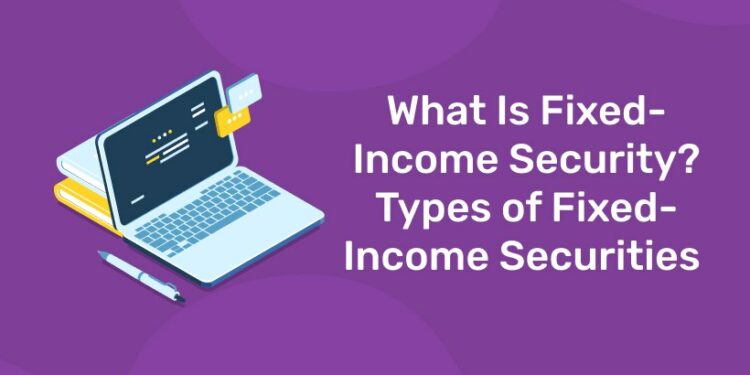A fixed-income security is a financial investment plan which provides a fixed amount of return to its holders, here the investors get returns at set intervals of time and a principal amount at its maturity. Governments, corporations, and other entities issue these instruments to finance their operations. Fixed-income securities are popularly known as Debt-instrument.
Types of Fixed-Income Securities
Fixed-income instruments are offered by Governments and Corporations to raise capital. It provides investors a return in the form of fixed-time payment and the eventual return of principal at maturity. An investor can choose different types of fixed income securities based on risk-factor, interest rates, and liquidity risk.
Fixed Deposits(FDs)
- Fixed deposit (FD) is one of the safest investment options, which provides high-interest rates and investors get an assured sum of money at the end of the maturity period.
- The interest rate depends on the type of lenders including the public sector, private sector, and small finance banks.
- Investors can choose the tenure according to their convenience.
- Fixed Deposits are usually two kinds:-Bank Fixed Deposits(FDs) and Company Deposits(CDs)
- Bank Fixed Deposits are offered by Private or State banks, which provides lower interest rate and a high level of security to the account.
- Companies and financial institutions offer Company Deposits with high-interest rates.
- The interest rate on FDs ranges from 5.5 percent to 8.5 percent. It will help investors to save taxes on deposits for 5 years and more.
Recurring Deposit(RD)
- A Recurring Deposit(RD) is an investment option, wherein an investor can deposit small amounts every month for a fixed period.
- An investor can decide on the amount and tenure accompanied by other benefits.
- More flexible as they allow fixed monthly investment compared to the one-time installment required for an FD.
- The interest rate is from 4 percent to 8 percent.
Bonds
- A bond is a loan from an investor to borrowers such as a company or government.
- Bonds are issued by the Government and large companies, to raise funds to finance projects and business growth.
- Investors purchase bonds at face value, which is returned at the end of fixed tenure.
Bonds can be divided into three according to their maturity, as follows:
- Bonds issued with maturity periods below five years are called short-term bonds. (1-3 years)
- Intermediate-term bonds are also known as medium-term funds. The maturity period of mid-term funds is longer than short-term. (3-10 years)
- Long-term bonds have a maturity of more than 10 years. (more than 10 years)
Fixed Maturity Plan or FMPs
- Fixed Maturity Plans or FMPs are closed-end debt funds with a maturity time that can range from 1 to 5 years. It usually invests in certificates of deposits(CDs), commercial papers(CPs), corporate bonds and bank fixed deposits.
Post Office Monthly Income Schemes
- The Post Office Monthly Income Scheme is a risk-free guaranteed scheme offered by the post offices in India.
- It is one of the popular investment schemes, as it can be started with a nominal account.
- People can open a Post Office MIS account with Rs 1000 and in multiple of Rs 100.
- The scheme offered two types of deposits:-Single account and a Joint account. A minimum of Rs 4.50 lakh can be deposited in a single account and 9 lakh in a joint account. In a joint account, each joint holder has an equal share in the investment.
- The investment tenure of the scheme is five years. The current interest rate offered by the POMI scheme is 6.6% per annum.
Treasury Bills or T-Bills
- Issued by the Central government needs money for a short period.
- The maximum maturity period of Treasury Bills is 52 weeks.
- It is also considered as government bonds or debt securities with maturity of less than one year.
Repurchase Agreements
- A temporary transfer of securities in exchange for money.
- Known as repos or buybacks.
- The buyer will be charged the interest rate to buy the security is called the Repo rate.










